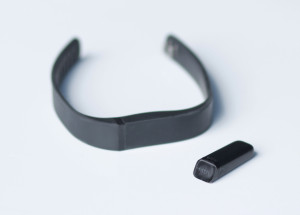Congratulations on winning a judgment against your Defendant! Even in the glow of your victory, take note that winning a judgment doesn’t automatically mean you get a check. Getting the judgment, no matter how much work you or your attorney put into getting it, can be the first step to getting paid, or what is referred to as a “satisfaction” of the judgment.
If your Defendant pays immediately, great! The judgment is then “satisfied”.
But what happens when the Defendant doesn’t pay the judgment?
Note, even though there is expense and time involved, you can pursue satisfaction through judgment collection. The Court may or may not grant you a judgment increase to cover your collection costs. Thus you must decide how far you are willing to go to collect your judgment. It is your decision to decide if the expense and time of pursuing your judgment is worth the effort to collect. For many plaintiffs – it is!
An initial step towards satisfaction is garnishing the Judgment Debtor’s wages. In Tennessee, employers even those of 1099 independent contractors, are required to garnish the Debtor’s wages or be responsible for the payment of the debt. A percentage of the Debtor’s wages is collected until the judgment debt is paid in full. It takes a while, but eventually, you will be paid in full – so long as they remain employed with that employer.
What if your Judgment Debtor is self-employed? You can still collect on your judgment but it will likely take more time and expense. Your Tennessee judgment will last ten years and can be revived to last even longer – so you’ve got time if you have the patience.
First, you need to do some reconnaissance and maybe post-judgment hearings to determine what property your Judgment Debtor owns. Maybe he owns real property (land) and personal property like cars, A.T.V.s, motorcycles, a truck, heavy equipment, or other property.
Second, if the Judgment Debtor still refuses to pay, the County Sheriff can seize the personal property and sell it at auction to satisfy the judgment. If the proceeds are not enough to pay the judgment, a lien can be placed on the real property. That lien (the judgment) must be satisfied first or at the time of closing before the property can be sold. Ultimately, this means you finally get your money!
You may have a Judgment Debtor who is “judgment proof”. This means essentially they do not have an employer from whom you can seek garnishment and don’t have any real or personal property of value. If so, this may mean your judgment may be difficult to collect and will require a lot of patience. Nothing but time and pressure make a diamond – and your wait can pay off – especially since Tennessee’s judgment interest rate keeps rising. That means your judgment amount will keep growing. And, your judgment is good for 10 years (you can renew the judgment before it expires).
So, while getting your judgment is the first step towards adding to your bank account and the process can take time, ultimately you can receive satisfaction in more ways than one!

 Can you take your cell phone into court? Maybe. Maybe not. In Wilson County, Tennessee? Definitely not. Upon approach, you will see multiple signs announcing cell phones or other recording devices were banned from the building.
Can you take your cell phone into court? Maybe. Maybe not. In Wilson County, Tennessee? Definitely not. Upon approach, you will see multiple signs announcing cell phones or other recording devices were banned from the building.
 As an attorney, I guide my clients not to publish their “moving on” moments on facebook or other social media and just keep it off social media period. Maybe your spouse may feel jealous of your latest loves after seeing you online going out night after night in downtown Nashville. Maybe not. But, your shared moments are well-documenting what the court would likely see as Inappropriate Marital Conduct – which is grounds for divorce in Tennessee. In other words, you are building a substantial case against yourself, selfie by selfie, all without your spouse or his/her attorney lifting a finger, other than saving the pictures to be used at trial. And, even if you delete content in a dramatic effort to clean up your social media history, it is still discoverable. Even deleted, once posted, it never actually goes away. People have long memories. The internet’s is longer, as in forever.
As an attorney, I guide my clients not to publish their “moving on” moments on facebook or other social media and just keep it off social media period. Maybe your spouse may feel jealous of your latest loves after seeing you online going out night after night in downtown Nashville. Maybe not. But, your shared moments are well-documenting what the court would likely see as Inappropriate Marital Conduct – which is grounds for divorce in Tennessee. In other words, you are building a substantial case against yourself, selfie by selfie, all without your spouse or his/her attorney lifting a finger, other than saving the pictures to be used at trial. And, even if you delete content in a dramatic effort to clean up your social media history, it is still discoverable. Even deleted, once posted, it never actually goes away. People have long memories. The internet’s is longer, as in forever. After viewing part of the new OJ drama on television last night, I recalled seeing the white bronco drama unfolding on my own small television one summer law school. The trial. The glove. The compliments on counsel’s hair. The verdict. It was fodder for a very hungry news machine. As I watched the white bronco speeding down the highway again last night, I considered what the coverage of such an event would be now. It would “telegraphed” by every iphone, tweet, Instagram, website, text, Snap chat, facebook post, blog and so forth now. The frenzy would make shark week look like your kid’s fish bowl.
After viewing part of the new OJ drama on television last night, I recalled seeing the white bronco drama unfolding on my own small television one summer law school. The trial. The glove. The compliments on counsel’s hair. The verdict. It was fodder for a very hungry news machine. As I watched the white bronco speeding down the highway again last night, I considered what the coverage of such an event would be now. It would “telegraphed” by every iphone, tweet, Instagram, website, text, Snap chat, facebook post, blog and so forth now. The frenzy would make shark week look like your kid’s fish bowl.